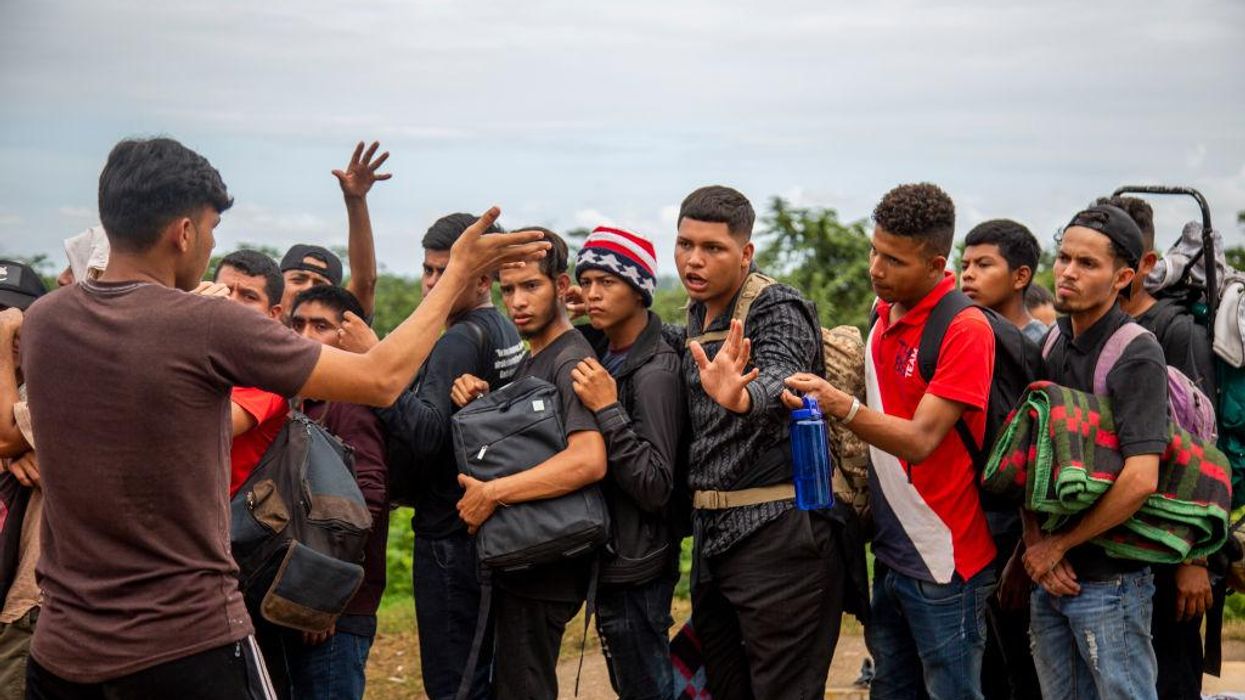
For the past several years, a patchwork of policies have illegally restricted people fleeing persecution from seeking safety at the U.S.-Mexico border. The ACLU recently won a critical lawsuit when a federal judge ordered an end to Title 42, one of the most restrictive policies, but multiple states and members of Congress are trying to keep the policy in place. At the same time, the federal government is reportedly considering resuscitating other inhumane Trump-era policies that would continue restricting access to asylum, rather than focusing on real solutions to a more fair and efficient immigration system.
As we gather together with loved ones this holiday season, and as the U.S.-Mexico border continues to make headlines, this topic may come up in conversations. To restore humanity to U.S. asylum policy, we need to center human dignity, truth, and justice in our conversations. This guide will help you do just that.
The basic facts you need to know:
Seeking asylum is a human right protected under international and U.S. laws.
People may come to the U.S. or the border to seek asylum and must prove their cases to be granted permanent protection.
Many policies threaten the human and legal right to seek asylum from persecution, but none succeed in deterring people from trying to seek protection at the border.
Despite obstacles, asylum seekers become integral members of our communities.
Money spent policing the border can be better spent establishing a fair, orderly, and welcoming asylum process.
First-hand stories of courage and survival
For those who aren’t already interested in these issues, our laws might seem abstract or arcane. One of the best ways to understand and convey their importance is by sharing the stories of people who are fighting for their right to seek asylum and are directly impacted by the policies that make headlines.
My Family Came to Seek Asylum, But Found Danger Instead
Searching for Peace: The difficult and dangerous journey to seek asylum in the United States, Part I
Searching for Peace: The difficult and dangerous journey to seek asylum in the United States, Part II
The history of asylum law and why it’s still critical
The right to seek asylum — or safety from persecution — in another country was born out of the tragedies of World War II and the horrors of the Holocaust. In its aftermath, dozens of nations committed to never again slam the door on people in need of protection. The right to asylum was enshrined in 1948’s Universal Declaration of Human Rights and then again in the Refugee Convention of 1951 and its 1967 Protocol.
The United States is a party to the Refugee Protocol and passed the Refugee Act of 1980 to comply with its international obligations. The Act protects people who are fleeing persecution on “account of race, religion, nationality, membership in a particular social group, or political opinion.”
The Refugee Act is meant to ensure that people who seek asylum from within the U.S. or at its border are not sent back to places where they face persecution.
These protections are just as critical today. More people have been forcibly displaced from their homes due to conflict, violence, and human rights violations in recent years than at any other time since World War II.
All people fleeing persecution are allowed to seek asylum under our laws. Period.
What you need to know about policies that restrict people from seeking asylum
The “Remain in Mexico” policy, first implemented by the Trump administration, forced people to wait in dangerous conditions in Mexico while their asylum cases proceeded in the U.S. The Biden administration attempted to end this policy, and the U.S. Supreme Court recently ruled that it has the authority to do so.
Title 42, first implemented by the Trump administration under the guise of public health, has been used for more than two-and-a-half years to expel people fleeing violence and persecution, rather than considering their claims. Expulsions under Title 42 have led to more than 10,000 documented cases of violent attacks, including rape, torture, and abduction, and have subjected Black and LGBTQ asylum seekers to particular risks. A federal judge recently ordered its end, but some politicians are fighting to keep it in place.
So-called “deterrence” policies aim to stop people from exercising the right to seek asylum through the threat of harm or punishment, such as family separation, mandatory detention, and criminalization.
Other policies aim to prevent people from requesting asylum to begin with, such as through severe metering or unlawfully denying asylum to people entering the U.S. at the Southern border who did not first apply for asylum in Mexico or another third country they transited through.
American Civil Liberties Union
Five Things to Know About the Title 42 Immigrant Expulsion Policy | News & Commentary | American Civil Liberties Union
Since March 2020, the government has misused the order to kick out people seeking asylum more than 1.7 million times.
What you need to know about the impact of these restrictive policies
These policies subject people who have already endured violence and persecution to further harm, including rape, torture, and abduction in many cases, by denying them the chance to seek safety and sending them back into harm’s way.
Although elected officials have claimed these policies discourage migrants from coming to the border, evidence shows they do not stop people from seeking safety and ultimately create more disorder.
Expulsions under Title 42, for example, have the opposite effect of deterring people. They have encouraged people seeking protection to repeatedly attempt to cross the border to find safety.
Even after imposing the strictest and most punitive rules against asylum seekers, President Trump faced sharp increases in the numbers of migrants at the border, at that time the highest numbers in over a decade.
How fear-mongering is used to win support for these policies
Anti-immigrant politicians continue to peddle falsehoods and racist tropes about an “invasion” to instill fear and win support for harmful policies. Ahead of the midterms, America’s Voice, an immigration advocacy organization, identified over 3,200 different paid communications that employed anti-immigrant attacks.
Governors of Florida, Arizona, and Texas have used asylum seekers as political props, placing them on flights and buses to communities like Martha’s Vineyard, to make headlines and perpetuate a fear-based narrative around the border.
Despite these attacks, the vast majority of Americans support asylum rights. According to a new poll conducted by the U.S. Immigration Policy Center at the University of California, San Diego, nearly three-quarters of Americans (73.4 percent) agree that the United States should provide access to the U.S. asylum system to people fleeing persecution and/or violence.
What we really need at the border, and how to fund it

(Credit: John Lamparski/NurPhoto via AP)
We need a more efficient, humane, and welcoming system at the border for people seeking asylum.
Much of the money Congress now spends on a bloated Border Patrol police force should be spent instead on humane reception and screening of people at the border and on making sure our immigration agencies and federal courts have enough employees and judges to decide asylum claims in a fair, orderly, and timely manner.
This money could also be used to support people in reaching family members or sponsors in the locations where they will wait for the government to decide their claims and to more quickly process work permits for asylum seekers so they can support themselves and contribute to their communities. One recent study estimated that on average, an asylum seeker contributes over $19,000 per year to the U.S. economy, and that a 25 percent reduction in the number of all people seeking asylum in the country would cause an economic loss of $20.5 billion over a five-year period.
How you can join the fight to protect the right to seek asylum
The policies discussed in this guide present a serious threat to the future of asylum rights, but we’ll continue to fight back through our ongoing litigation, in the halls of Congress, and through public education. And we’re not stopping there. We’re fighting for a fundamentally more humane and welcoming system at the border for people seeking asylum — and you can, too.
Here are four ways you can join the fight to protect the right to seek asylum no matter where you live.
Use this guide to speak to your friends and family and educate them on the importance of protecting asylum rights.
Share why you support welcoming people with humanity and dignity on Soapbox and tag your members of Congress.
Send a message to Congress telling them not to extend Title 42.
Visit the ACLU Border Humanity Project — a campaign to fight for humane border policies — for other ways to get involved.
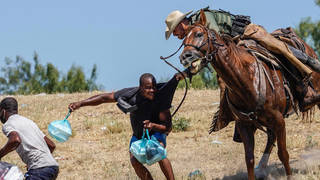

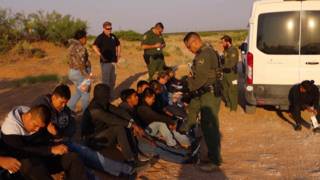
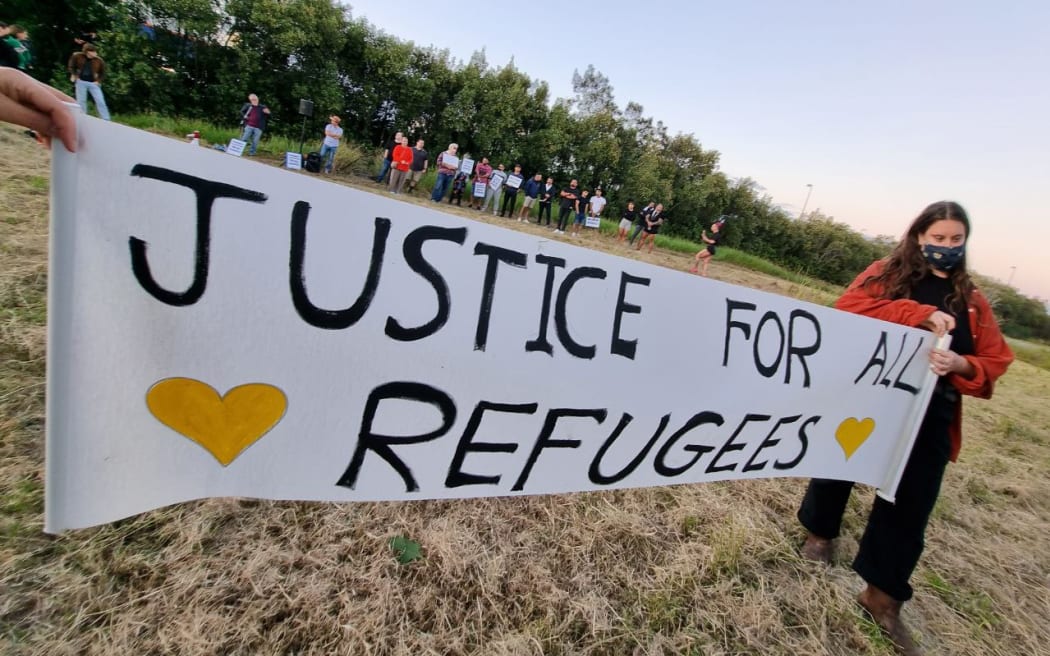
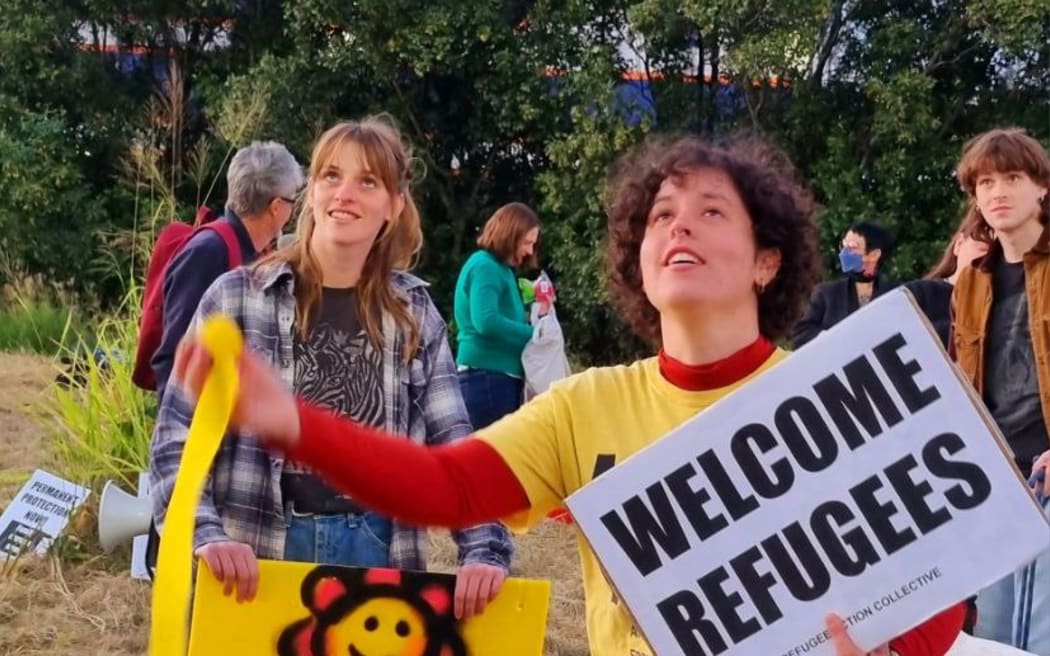
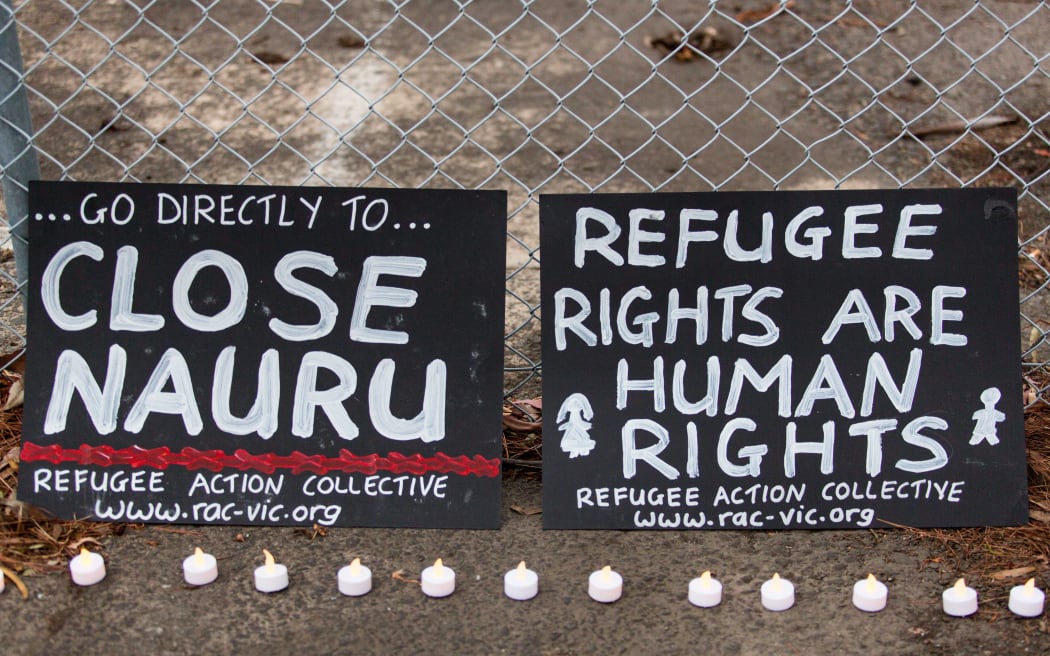


 (@refugeecouncil)
(@refugeecouncil) 
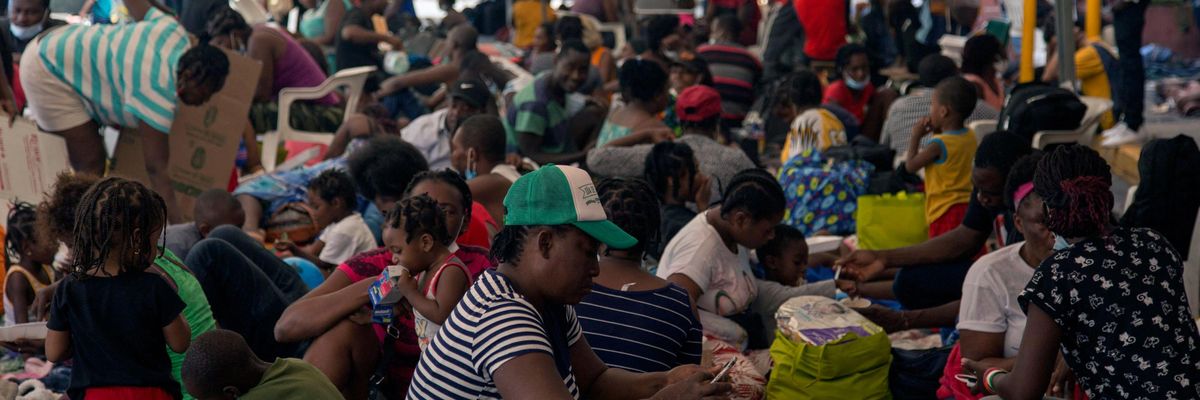



 (@safepassageuk)
(@safepassageuk) 